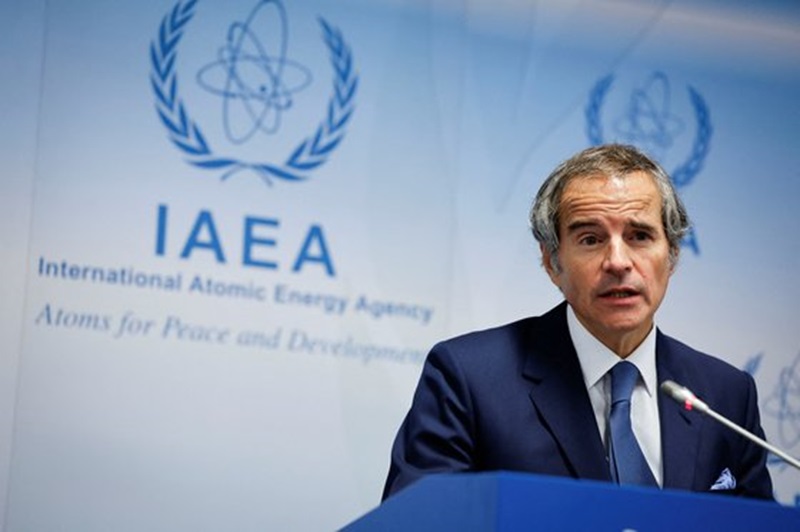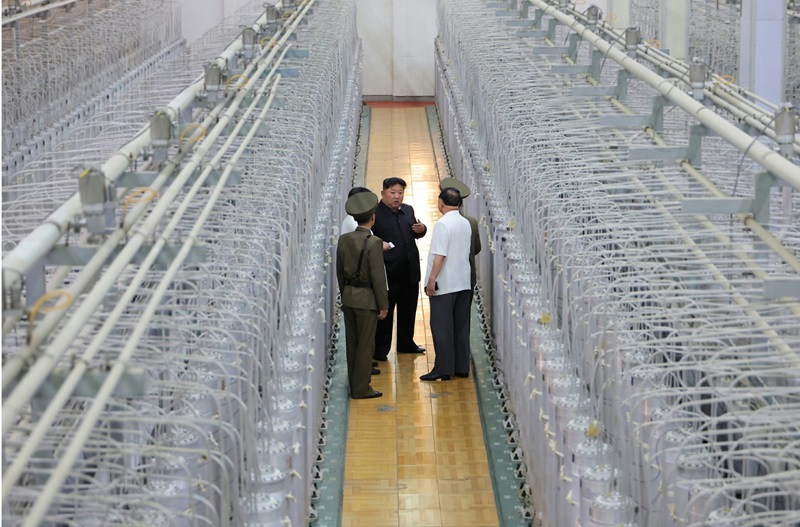In a significant shift in tone, Rafael Grossi, director general of the International Atomic Energy Agency (IAEA), suggested that the international community should recognize North Korea’s possession of nuclear weapons and engage in dialogue, according to a report by AP on September 26.
His remarks come as the notion of tolerating North Korea’s nuclear status gains traction in some international circles, including within the U.S., raising concerns about the potential impact of such recognition on global non-proliferation efforts.
During his interview with AP, Grossi referred to North Korea as a “de facto nuclear weapon possessor state,” emphasizing that since 2006, when the country became a nuclear-armed state, there has been no meaningful engagement from the international community. He further noted that North Korea’s nuclear program has expanded significantly during this period.
While Grossi acknowledged that North Korea’s nuclear activities violate United Nations Security Council resolutions and international law, he stressed the importance of finding a way to break the ongoing deadlock in communication. He urged the international community to seriously consider how to stop the current impasse.

Grossi emphasized the need for a carefully prepared and diplomatic approach to rebuild trust with North Korea, suggesting that nuclear safety could be one potential area for engagement. His comments have sparked concerns, as they appear to acknowledge North Korea’s nuclear capabilities—a stance that could be perceived as a softening of the IAEA’s long-standing opposition to North Korea’s nuclear ambitions.
Critics worry that such language might lend support to North Korean leader Kim Jong-un’s strategy of asserting the country’s nuclear status. As the head of an organization dedicated to promoting the peaceful use of nuclear energy and maintaining the global non-proliferation regime, Grossi’s words could be interpreted as leaving room for the recognition of North Korea’s nuclear arsenal, a move that might be exploited by Pyongyang.
Historically, Grossi has been clear in his opposition to North Korea’s nuclear program. In a 2020 speech at the Carnegie Endowment for International Peace, he stated unequivocally that North Korea’s possession of nuclear weapons was illegal and that the country would not be recognized as a nuclear-armed state. Similarly, in October 2022, the IAEA adopted a resolution calling for North Korea to return to the Nuclear Non-Proliferation Treaty (NPT) and accept IAEA inspections and verification measures.
However, Grossi’s recent acknowledgment of North Korea as a “de facto nuclear state” marks the first time such a stance has been taken by an IAEA chief, raising questions about the implications for global non-proliferation efforts and potential unintended consequences.
Park Won-gon, a professor of North Korean studies at Ewha Womans University, warned that if the IAEA were to recognize North Korea as a nuclear state, it would undermine the agency’s core mission of non-proliferation. He pointed out that skepticism is growing within the international community about the feasibility of achieving full denuclearization of North Korea, a concern that Kim Jong-un appears poised to exploit.
Park further emphasized that the South Korean government, which faces the existential threat posed by North Korea’s nuclear arsenal, must firmly reject any negotiations or agreements that do not clearly commit to Complete, Verifiable, and Irreversible Denuclearization (CVID).

Meanwhile, the South Korean Ministry of Foreign Affairs reiterated that denuclearization remains an essential goal for peace and stability on the Korean
Peninsula and worldwide. The ministry stated that it would continue to work closely with the international community, including the IAEA, to achieve North Korea’s denuclearization.
The ministry also emphasized that while the South Korean government has kept the door open for dialogue with North Korea, Pyongyang has consistently refused to engage and remains focused on advancing its nuclear program.
These developments come as both the U.S. Republican and Democratic parties have omitted denuclearization goals from their 2024 platforms. In previous elections, both parties had explicitly supported the goal of CVID, but this year, the focus on North Korea appears to have waned, leading some to question whether future U.S. administrations might prioritize arms control or threat reduction over full denuclearization.
Adding to these concerns, North Korea recently made an unprecedented move by revealing its uranium enrichment facilities in a series of photographs, interpreted by analysts as an effort to secure recognition as a nuclear-armed state ahead of the upcoming U.S. presidential election.
Experts suggest that North Korea’s actions, coupled with support from countries like Russia, which has tacitly acknowledged Pyongyang’s nuclear capabilities, could complicate efforts to achieve global nuclear non-proliferation.
As the situation unfolds, the international community is left grappling with how to address the growing nuclear threat posed by North Korea while maintaining a commitment to the principles of disarmament and non-proliferation.
BY PARK HYUN-JU, YOUNGNAM KIM [kim.youngnam@koreadaily.com]




